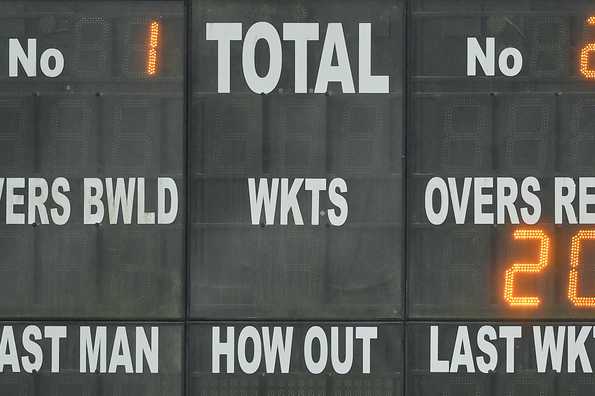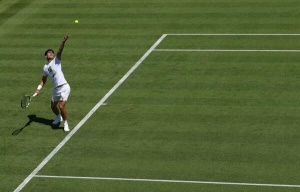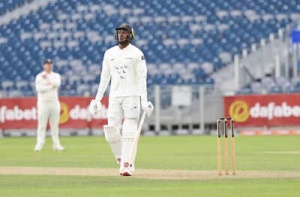The International Cricket Council (ICC) has announced alterations to the Playing Conditions for Twenty20 Internationals, with a primary focus on adjusting PowerPlay calculations. The significant change involves rounding the length of the powerplay to the nearest ball, rather than the nearest over.

Under the existing rules, the initial six overs constitute the PowerPlay, representing roughly 30% of a standard 20-over innings. Shortening an innings necessitates an adjustment to maintain fairness, and rounding to the nearest over could previously introduce disproportionate effects.
When the batting team's overs are reduced, the number of Powerplay overs will be adjusted according to the following table, applicable to both the first and second innings:
| Match reduced (overs) | Powerplay overs |
|---|---|
| 5 | 1.3 |
| 6 | 1.5 |
| 7 | 2.1 |
| 8 | 2.2 |
| 9 | 2.4 |
| 10 | 3 |
| 11 | 3.2 |
| 12 | 3.4 |
| 13 | 3.5 |
| 14 | 4.1 |
| 15 | 4.3 |
| 16 | 4.5 |
| 17 | 5.1 |
| 18 | 5.2 |
| 19 | 5.4 |
Previously, an 8-over innings would have two powerplay overs, while a 9-over innings would have three. The updated table adjusts these to 2.2 and 2.4 overs respectively, maintaining a proportion closer to 30%.
The ICC shared with its members, "This table has been used in the T20 Blast in England for many years, where ending a powerplay midway through an over has caused no difficulty for players or officials. It has now been accepted by the ICC Men's Cricket Committee as the preferred method moving forward. In the 8 over example above, the umpire will make the signal after 2 balls of the 3rd over, at which point three further fielders are able to drop back from within the circle."
The ICC has mandated that concussion replacements in Men's T20I matches must be identified and named before the match commences. This levels the playing field by eliminating any home team advantage related to a larger available player pool. Teams are encouraged to nominate the following replacements to the match referee:
Acknowledging the challenges faced by Associate Member teams, the ICC will accommodate situations where identifying five specific concussion replacement players is difficult, especially for teams playing overseas with limited available players.
Teams can nominate a batter as the replacement wicketkeeper. However, the referee retains the discretion to require the nominated batter to keep wicket if used as a replacement or allow another player from the starting XI to do so. This ensures a like-for-like replacement rather than gaining an unfair advantage.
Players can be nominated for multiple categories. For example, an all-rounder nominated as a batter replacement might be restricted from bowling by the referee. Nominees are not restricted to the playing squad and can be anyone eligible to play for the team.
The overriding principle remains a like-for-like concussion replacement, with the referee responsible for assessing replacements based on the circumstances.
For the home team, nominating five specific replacements is easier due to access to a wider pool of players. The same player can be nominated more than once if needed.
For away teams, typically with 14 players in the touring squad, the three players not in the starting XI should be nominated, with two of them nominated twice. If eligible players are available outside the squad in the host country, they can also be considered.
Under exceptional circumstances, the match referee may consider a replacement player outside the nominated list.
The ICC has addressed the use of saliva on the ball. If any substance, including saliva, is used to alter the ball's condition, the ball must be replaced. However, a new clause prevents teams from deliberately applying saliva to force a ball replacement.
These changes currently apply only to the Men's playing conditions, with updates to the Women's playing conditions expected in October. The new playing conditions take effect from July 10, 2025.
Newer articles
Older articles
 The 'Good Cop, Bad Cop' Parenting Strategy: Does It Do More Harm Than Good?
The 'Good Cop, Bad Cop' Parenting Strategy: Does It Do More Harm Than Good?
 5 Natural Ways to Strengthen Your Heart and Reduce Disease Risk
5 Natural Ways to Strengthen Your Heart and Reduce Disease Risk
 Broadside: Broad Slams India's Team Choices After Headingley Test, Calls for Edgbaston XI Changes
Broadside: Broad Slams India's Team Choices After Headingley Test, Calls for Edgbaston XI Changes
 Wimbledon Serves Up India: Tennis Giant Courts Cricket-Crazy Nation for Growth
Wimbledon Serves Up India: Tennis Giant Courts Cricket-Crazy Nation for Growth
 England's Ben Duckett: The New Virender Sehwag? Former Coach Draws Bold Comparison
England's Ben Duckett: The New Virender Sehwag? Former Coach Draws Bold Comparison
 Archer Set for England Return? Broad and Buttler Advocate for Pacer's Second Test Inclusion
Archer Set for England Return? Broad and Buttler Advocate for Pacer's Second Test Inclusion
 Ashada Gupt Navratri 2025: Unveiling Dates, Timings, and Esoteric Significance
Ashada Gupt Navratri 2025: Unveiling Dates, Timings, and Esoteric Significance
 Suryakumar Yadav's Sports Hernia Surgery: What It Is, Who's at Risk, and Path to Recovery
Suryakumar Yadav's Sports Hernia Surgery: What It Is, Who's at Risk, and Path to Recovery
 The Evil Eye: Protective Charm or Portal to Darkness? Exploring the Symbol's Dual Interpretations
The Evil Eye: Protective Charm or Portal to Darkness? Exploring the Symbol's Dual Interpretations
 Jaiswal Eyes Gavaskar's 49-Year Record: India's Opener Nears Milestone 2,000 Test Runs in Edgbaston Clash
Jaiswal Eyes Gavaskar's 49-Year Record: India's Opener Nears Milestone 2,000 Test Runs in Edgbaston Clash